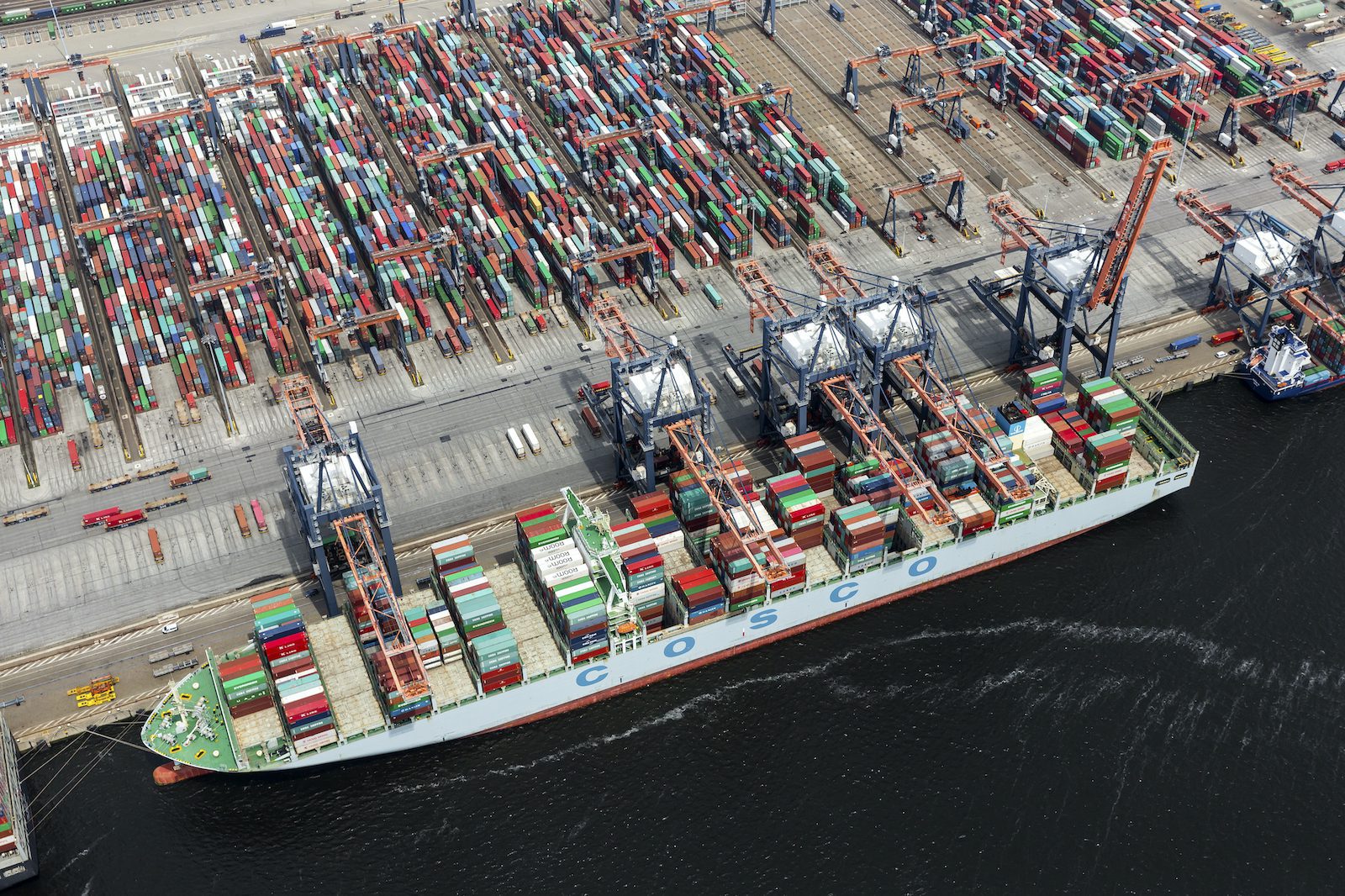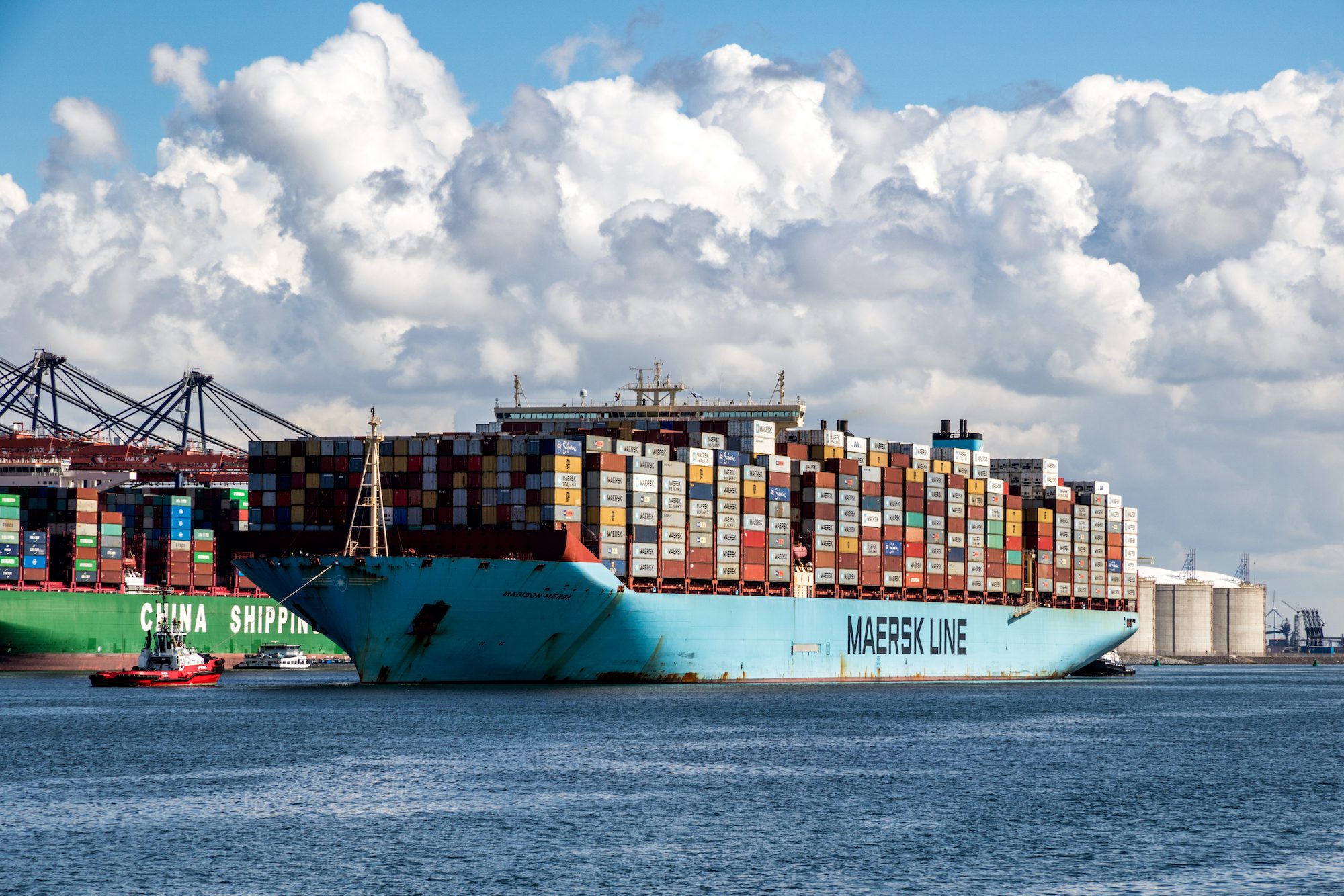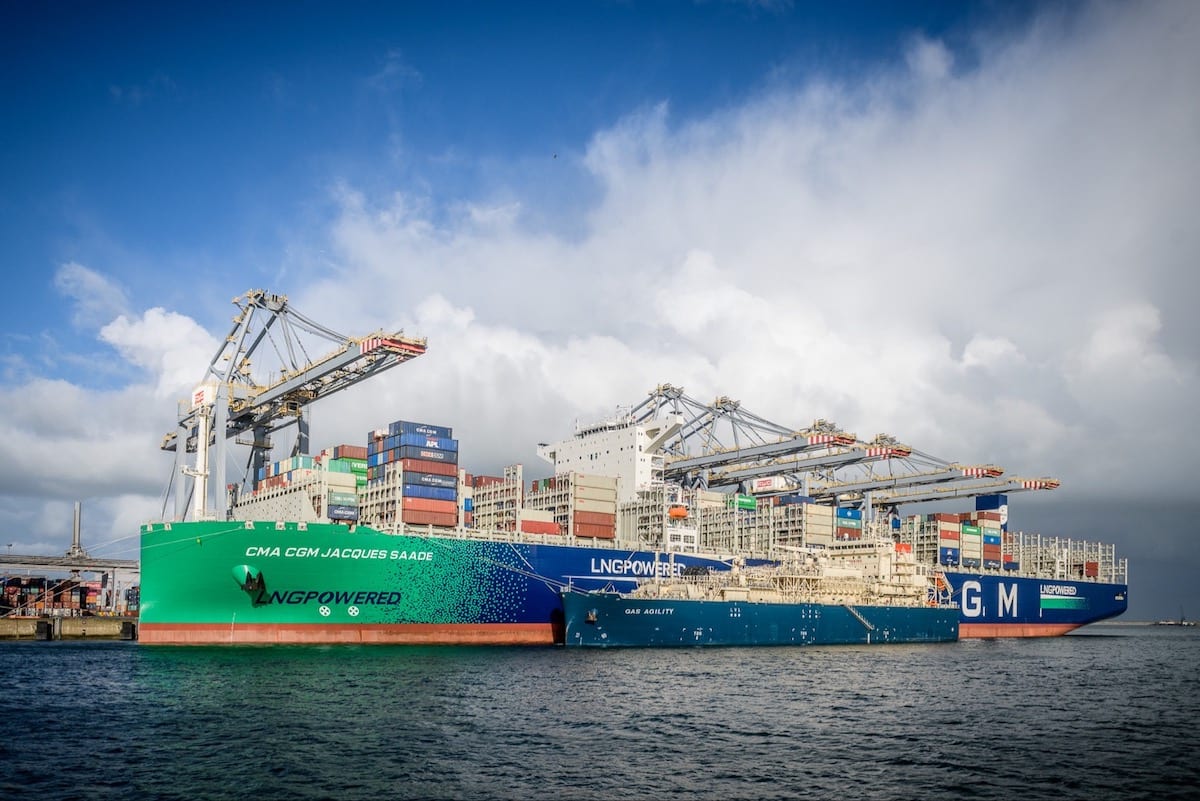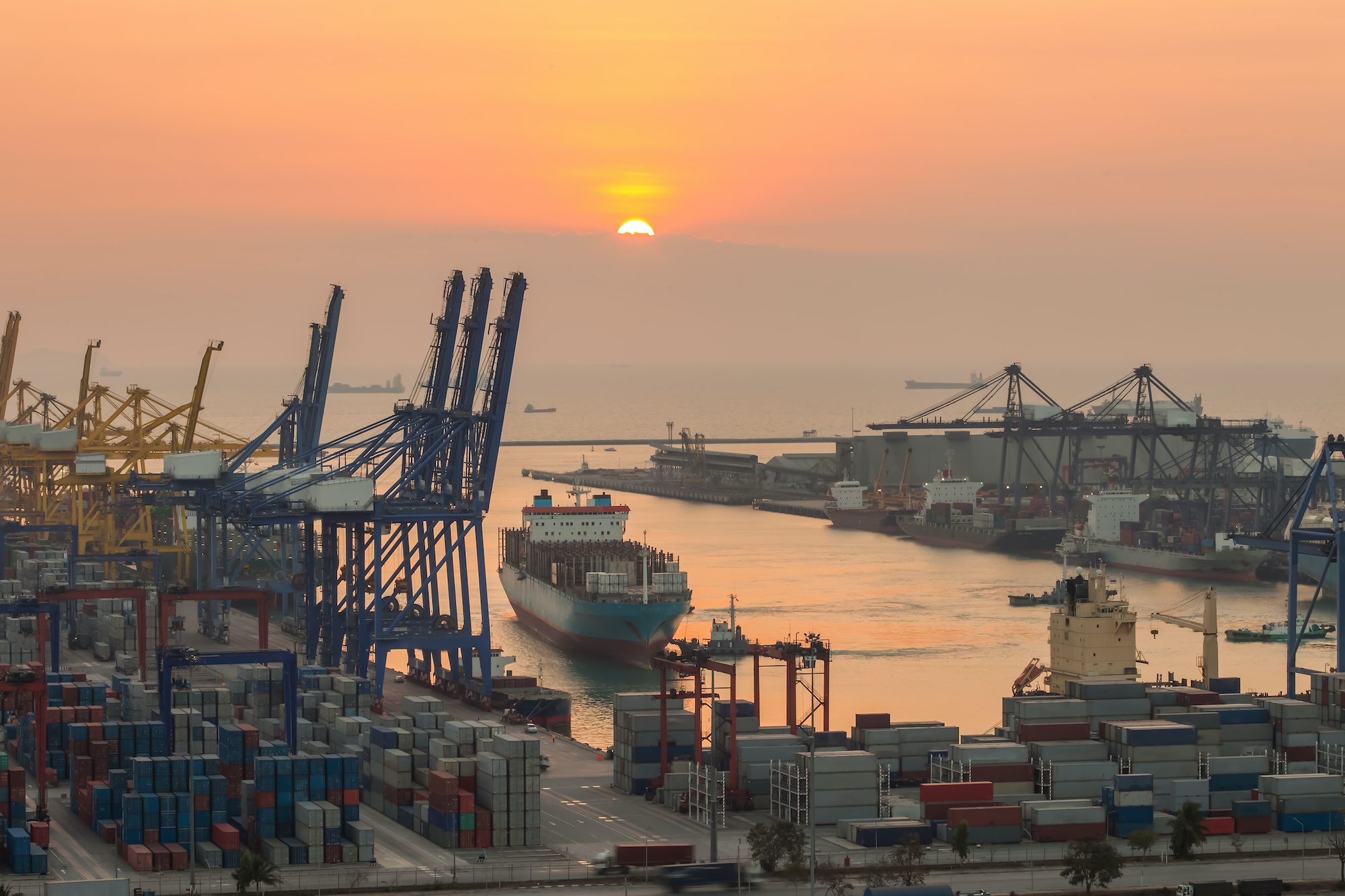Europe’s busiest port, the Port of Rotterdam, saw a decline of 1.4% in its total throughput in the first quarter of 2024 compared to last year.
In total, the port handled 110.1 million tonnes in the first three months of this year, down from 111.7 million tonnes in the corresponding period of 2023. The decrease is primarily attributed to a reduction in the throughput of coal, crude oil, and oil products.
According to Port of Rotterdam Authority’s CEO & Interim COO Boudewijn Siemons, the throughput figures reflect a limited import of raw materials and exports of finished products, suggesting that European industrial production continues to suffer from high energy costs and decreased demand from majorly declining sectors like construction, processing and automotive industries.
For the first time in three years, however, containers throughput saw a slight increase, up 2% to 3.3 million TEUs. The throughput in tonnes showed a rise of 3.3%, from 31.5 million tonnes to 32.5 million tonnes. “From the growth in container throughput, we see the first signs that world trade is picking up. However, these tentative signs remain highly uncertain due to rising global tensions,” said Siemons.
In the dry bulk segment, throughput fell by 4.5% compared to the first three months of 2023, mainly due to a significant reduction in coal throughput. This decline was because of decreased demand for thermal coal used in power generation at coal-fired power plants. In contrast, iron ore imports saw a rise, aligning with the uptick in German steel production.
The liquid bulk throughput saw a decrease of 3.1% to 52.6 million tonnes, influenced by lesser throughput of crude oil, mineral oil products, and other liquid bulk. However, the throughput of LNG, used as a natural gas source, increased by 3.6% to 9.1 million tonnes.
The total throughput in the breakbulk market segment, including Roll-on/Roll-off and other breakbulk, decreased by 1.9% to 7.8 million tonnes. The RoRo throughput fell by 3.8% to 6.3 million tonnes compared to the first quarter of last year, primarily because volumes to the UK have not recovered yet. However, other breakbulk saw a rise of 7.4% to 1.5 million tonnes.
Editorial Standards · Corrections · About gCaptain

 Join The Club
Join The Club











